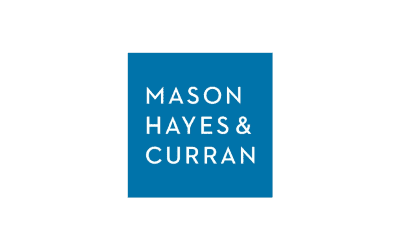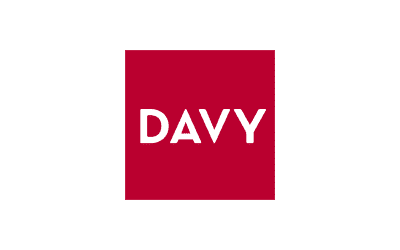Wednesday 10th August, 2022
Estelle Feldman R.I.P.
We bade farewell to our first female President last month with the passing of distinguished academic Estelle Feldman. On the occasion of the Association’s 50th anniversary in 2017, she gave an insightful and wide-ranging interview on the MBA experience to Frank Dillon.
Getting an MBA qualification was a seminal moment in the career of Estelle Feldman. Indeed, as she tells it, it was an escape from a world of mediocrity. Estelle had been working in a senior management position at Stewart’s Hospital in Palmerstown. She enjoyed the job, which at one time included responsibility for the institution’s recreation programme, but found she wasn’t being stretched. Moreover, expectations of people in her sector were poor.
“It was hard to convince people at the time that if you worked in the health service, you were a good manager. Doing the MBA programme was my mechanism to get out.”
Estelle enrolled in UCD’s two-year part-time MBA programme in 1984 and threw herself into the course. “It was a rush to college at 4.30 each evening and the reading list was as long as your arm, so you learned very quickly about prioritising. Part-time MBAs are difficult if you are holding down a job. It’s a full-time role on top of another full-time role.”
The hard work she put in paid off, however, and Estelle graduated with a ‘good MBA’, as she puts it.
Among the academic staff that she met in the Business department of UCD was John Murray, who subsequently left to go to TCD as Professor of Business Studies. One of his first tasks was to establish a new MBA programme at TCD and there was a job going as part-time MBA Director working directly to him.
“I rang John and asked him whether, if I applied, my application would go straight in the bin. He assured me it wouldn’t, so I applied and I was accepted for the position,” she recalls.
Thus began a long professional relationship between the pair, characterised by a shared vision of what an MBA programme should look like. Out, for example, went the notion of doing a thesis, a ‘complete waste of time’ and the course developed a much more practical edge. The course also became a full-time, one-year programme, a model soon copied by competitors.
From nowhere, the Trinity programme soared in the international rankings almost from its inception, she says, and it was soon attracting overseas as well domestic as participants.
There are two types of people who do MBAs, in her experience. “You have the person who is doing the job anyway and wants to have a theoretical base and then you have the person who has been operating in a functional base – an engineer, for example – who wants to break out of that limiting environment into a broader management role.”
For those fortunate enough to have the opportunity to do one, an MBA is a very rewarding qualification, she maintains. “Regardless of why you do it, the one common benefit that you get from an MBA is that it gives you what I like to call a grounded self-confidence. You develop this great ability to assess situations and in your interactions with others, it becomes harder for others to pull the wool over your eyes.”
TCD’s MBA programme was ‘run like a boot camp’, she recalls. “The programme ran from October to the end of the following September and it was all consuming. If I saw students who didn’t look tired as we approached the Summer, I knew that they were not engaging. It took a heavy toll on partners and relationships could suffer if people were not careful. The one insight I took from observing this is that I would encourage those with partners to get the partner to engage in some type of development activity themselves during this process so you have shared objectives. An MBA certainly changes you.”
Estelle’s role in the MBA programme led to her involvement with the MBAAI where she became the organisation’s first woman President in 1989.
Her time there saw a significant development in membership including the introduction of student membership. At the time, membership was concentrated around the UCD MBA graduate network and Estelle tried to widen this by seeking to attract anyone in Ireland who had undertaken an MBA programme.
Membership benefits were developed as were professional events such as guest lectures. There was also an active social side to membership. At the time of her Presidency, golf clubs were male preserves with restricted access for women. She recalls arriving at a club in south county Dublin to host the Association’s golf outing and being told by a member of staff to wait while ‘they got someone for her.’
Insisting that she was the President and this was her outing, Estelle took her place at the bar – egged on by fellow MBAAI members – while club members looked on disapprovingly.
While an excellent role model for women who, she noted, needed to ‘push themselves onto MBA programmes’ alongside men who felt a greater sense of entitlement, she does not see herself as some class of a radical campaigning feminist. Gender equality is not just about women’s rights, she observes and she says that she is opposed to gender quotas, favouring equality based on merit.
Estelle moved from the Business faculty to TCD’s Law School, becoming a Research Associate in 1996. Her teaching interests include constitutional law, administrative law, medical law and especially children’s rights. She has contributed since 1999 to the Annual Review of Irish Law on Information Law and The Ombudsman, Whistleblower Protection ( since 2007) and is currently sole author of the chapter on Constitutional law (co-authored since 2003).
Estelle has also served on the Board of the Adelaide Meath Hospital Group incorporating the National Children’s Hospital (Tallaght Hospital) and as Chair of the National Children’s Hospital committee and is currently on the board of Clontarf Orthopedic Hospital. She is also an accredited mediator with the Centre for Effective Dispute Resolution (CEDR).
The issues that exercise her these days are the deficiencies, as she sees it, of the whistle-blower legislation in Ireland and the conditions of those in direct provision.
Among the problems she identifies with whistle-blowers are the fact that, ‘you have to be harmed before you are in any position to take advantage of the legislation’ and that whistle-blowing is seen in terms of a ‘saint versus sinner’ equation, where nuances are not appreciated.
Direct provision is a subject that generates strong feelings. She is hugely concerned that we are ‘creating an underclass where children have never seen their parents work or cook.’
‘What kind of society allows that to happen? We will be looking back at this in horror in around 10 years’ time and there will be calls for a Public Inquiry,” she concludes.















